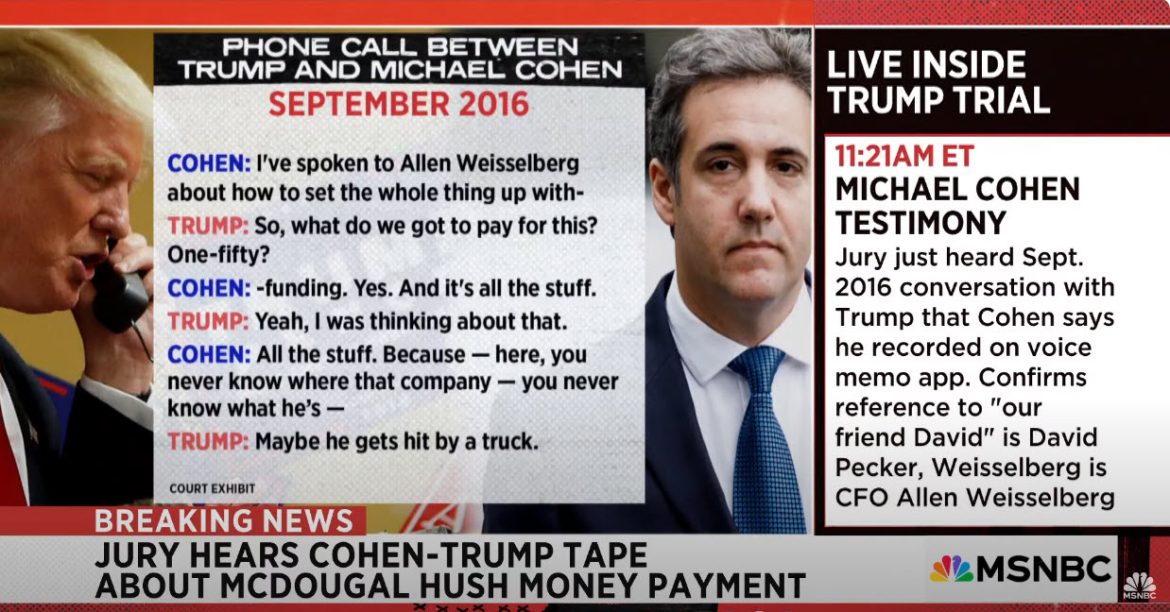The ongoing criminal hush money trial of former President Donald Trump continues to command attention, unfolding under the intense scrutiny of both the public and political figures. Today, the courtroom saw the participation of Republican Senators J.D. Vance and Tommy Tuberville, highlighting the significant political stakes of the trial. Trump, accompanied by these political allies, entered the courthouse declaring the trial “rigged” and lamenting his absence from the campaign trail.
Central to the proceedings today was Michael Cohen, Trump’s former attorney, who took the stand to testify against his former boss. Cohen’s testimony centered on a $130,000 payment made to adult film star Stormy Daniels, allegedly to silence her about a 2006 encounter with Trump ahead of the 2016 Presidential election.
The charges against Trump include falsifying business records to conceal this payment, a claim that the defense vigorously disputes by questioning Cohen’s credibility and highlighting his previous convictions for tax evasion and lying to Congress.
The presence of prominent Republican figures like Vance and Tuberville, alongside others such as Congresswoman Nicole Malliotakis and Senator Rick Scott, underscores the trial’s resonance within GOP circles. Vance, who is considered a potential vice-presidential running mate for Trump in future elections, has voiced strong support for Trump, suggesting that the charges are politically motivated. This sentiment was echoed by Trump himself, who has repeatedly called the trial a political interference orchestrated to derail his political future.
As last week concluded, former President Donald Trump vehemently criticized his ongoing hush money trial, labeling it as “a sham.” Upon exiting the New York City courthouse on Friday, Trump expressed frustrations over the imposed gag order, pointing out disparities in what he perceives as freedom for his former lawyer and star witness, Michael Cohen, to speak freely. Cohen’s pivotal testimony involves his role in arranging a $130,000 payment to Stormy Daniels, aimed at preventing public disclosure of a 2006 sexual encounter with Trump before the 2016 election.
The trial is poised to enter a critical phase, with the jury expected to begin deliberations soon, as the prosecution plans to call two more witnesses and potentially rest its case by the end of the next week. Trump insists that the allegations and proceedings against him are driven by political motives, intensifying the spectacle surrounding the trial.
As the trial progresses, with the prosecution expected to rest its case soon after calling two more witnesses, the political and legal implications continue to intertwirl. The trial, marked by dramatic declarations and a significant media circus, not only explores legal boundaries but also tests the political loyalty and future strategies of the Republican Party.



